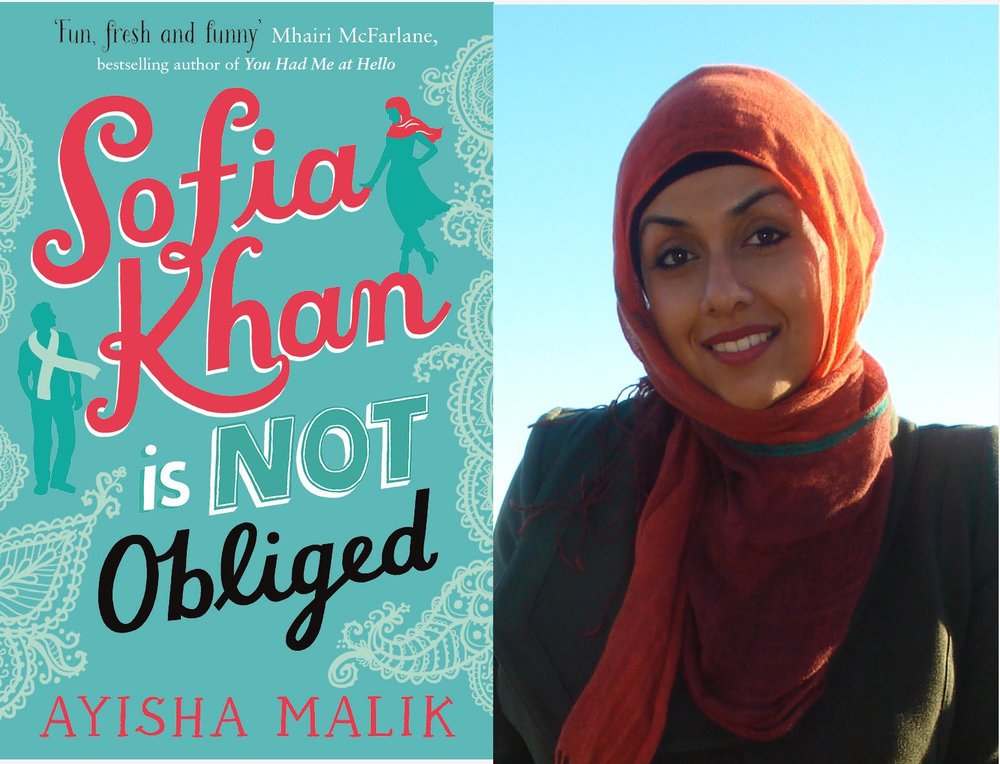Writing in a Pigeonhole: The Art of Breaking Barriers
As a British Pakistani Muslim woman there are so many ways I’ve felt out of place while trying to find my voice and style as a writer. I felt as though I didn’t have the same creative freedom as my white counterparts - writers who have traditionally been granted the privilege of writing any story they desire, featuring characters from any race, class, age, country, profession. The only thing their work would be analysed for was the quality of their writing, research and plot.
However, this same privilege and freedom hasn’t traditionally been granted to People of Colour. We are expected to write within certain frameworks and themes that are intimately connected to our own background, cultural reality, religion, nationality, gender, race. As a writer, this was be very limiting, both mentally when we are trying to write and in terms of actually getting a manuscript published.
I began pushing against the limits of what I was expected to write and tapped into my individuality, truth and uniqueness as a writer.
Ayisha Malik is the author of ‘Sofia Khan is Not Obliged’, which was released in 2015. It’s a romance comedy novel featuring a hijabi British Pakistani Muslim woman as the main character. It is not about extremism or patriarchy or honour killings. It’s a hilarious and unputdownable story of a confident, independent Muslim woman who’s halal-dating in London. I remember coming across it in WHSmith when it first came out and stopping dead in my tracks. It was such a breath of fresh air it almost brought tears to my eyes. This representation is far more realistic and relatable to the vast majority of Muslim women in contemporary Britain rather than books that highlight stereotypical themes of oppression, gender inequality and forced marriage.
I had the pleasure of attending one of Ayisha Malik’s events for this book in a library in Luton in 2017. During the Q & A session, I asked a question, stating that I was an inspiring writer and felt propelled to write within constricting boxes, and whether she also felt that pressure to stick to certain stereotypes in her writing. Her response was both eye-opening and honest. She stated that she’d worked in publishing for many years, which is predominantly white, and People of Colour were indeed pigeonholed into producing certain kinds of stories. However, things were also changing in the industry and it was important to push against limiting stereotypes and themes. Her advice stayed with me, and I began pushing against the limits of what I was expected to write and tapped into my individuality, truth and uniqueness as a writer.
The art of breaking barriers comes with a lot of mental work. Mostly because the dream of almost every writer is to become a published author (it was most definitely my dream) and there so many hurdles to cross in order to find a publisher who is willing to print your work. To put it simply: you have to follow their rules if you want a publisher to take on your book. And if they expect certain kinds of stories from writers with your surname and background - because those are the stories that sell from writers with your surname and background - then it becomes a struggle between writing what you want to write (at the expense of it never getting picked up) and writing what you know will sell to publishers (and get you exposure and give you an income).
It’s important to bear in mind that writing a single book can take writers many months (or even years). It is such an intense investment of time, usually with nothing in return. And if writers feel as though they're working on something that isn’t going to spark interest with publishers, they feel like they’re wasting their time.
It’s an incredible time to be a writer of colour, and I love the freedom I’ve begun to feel in the narratives I’m currently experimenting with.
According to editorial book site Book Riot, although the publishing industry is still predominantly white, there is a shift in the stories that are being published. There is now a deep consciousness of the importance of authentic representation - not just the kind that will get boxes ticked. People of Colour are no longer only appearing in the background in the work of popular writers (and in blockbuster films) - they’re taking centre stage, and that too in a holistic, honest way. It’s an incredible time to be a writer of colour, and I love the freedom I’ve begun to feel in the narratives I’m currently experimenting with.
Best-selling authors such as Sabaa Tahir, Jenny Han, Angie Thomas and Marie Lu have paved the way for other writers who have stories to share that offer both true representation and an epic thrill. Things are changing, and it’s about damn time. The truth is that authentic representation really matters. And the books we read and movies we watch should reflect the diverse world that we live in, capturing the truth of the experiences and lives of people from minority backgrounds. Furthermore, the success of popular literature and TV such as Crazy Rich Asians, Children of Blood and Bone, and To All the Boys I’ve Loved Before shows the massive demand for such representation. It’s not only necessary, it’s mind-blowingly entertaining and wonderful.



